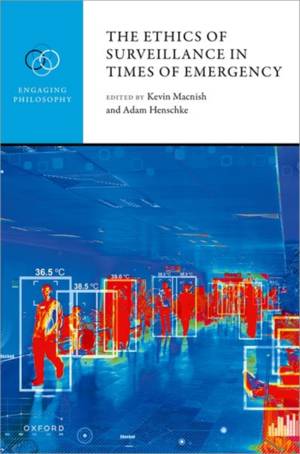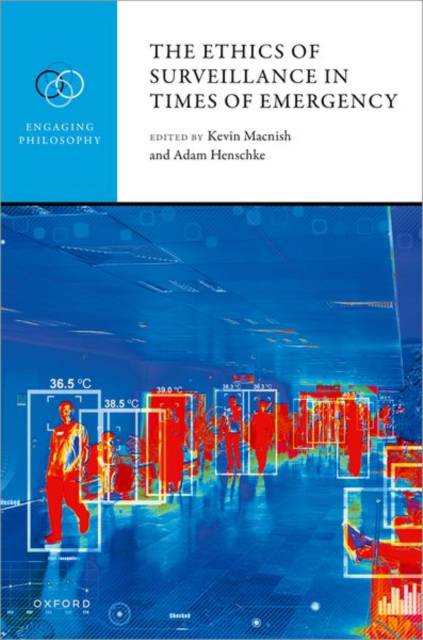
Je cadeautjes zeker op tijd in huis hebben voor de feestdagen? Kom langs in onze winkels en vind het perfecte geschenk!
- Afhalen na 1 uur in een winkel met voorraad
- Gratis thuislevering in België vanaf € 30
- Ruim aanbod met 7 miljoen producten
Je cadeautjes zeker op tijd in huis hebben voor de feestdagen? Kom langs in onze winkels en vind het perfecte geschenk!
- Afhalen na 1 uur in een winkel met voorraad
- Gratis thuislevering in België vanaf € 30
- Ruim aanbod met 7 miljoen producten
Zoeken
The Ethics of Surveillance in Times of Emergency
€ 135,45
+ 270 punten
Omschrijving
This is an open access title available under the terms of a CC BY-NC-ND 4.0 International licence. It is free to read on Oxford Academic and offered as a free PDF download from OUP and selected open access locations. The Ethics of Surveillance in Times of Emergency draws from the use of modern surveillance technologies during the COVID-19 pandemic to explore a set of issues and challenges facing decision-makers and designers in times of emergency: how do we respond to emergencies in ways that are both consistent with democratic and community principles, and that are ethically justifiable? Emergencies, like public health pandemics, not only place stress on existing infrastructure and communities, but put significant pressure on our decision-making. The use of surveillance technologies during public health crises is a vital frame to explore the challenge of acting in times of emergency. Moreover, as an exercise in reflective applied ethics, this book does not just seek to apply a given theory or principle to the problem of surveillance in times of emergency, but to use the challenges facing us to critically engage with, reflect upon, and develop those theories and principles. The book's authors recognize this challenge--is it possible to respond to exceptional conditions in ways that either preserve our core values, or must these core values be subsumed under the need to respond to the particular emergency? The book offers responses to this challenge by looking at three interrelated ways in which can manifest: first, the democratic challenges; second, the ethical challenges; and third the design challenges faced in developing ethical solutions.
Specificaties
Betrokkenen
- Uitgeverij:
Inhoud
- Aantal bladzijden:
- 232
- Taal:
- Engels
- Reeks:
Eigenschappen
- Productcode (EAN):
- 9780192864918
- Verschijningsdatum:
- 16/02/2024
- Uitvoering:
- Hardcover
- Formaat:
- Genaaid
- Afmetingen:
- 160 mm x 224 mm
- Gewicht:
- 498 g

Alleen bij Standaard Boekhandel
+ 270 punten op je klantenkaart van Standaard Boekhandel
Beoordelingen
We publiceren alleen reviews die voldoen aan de voorwaarden voor reviews. Bekijk onze voorwaarden voor reviews.








